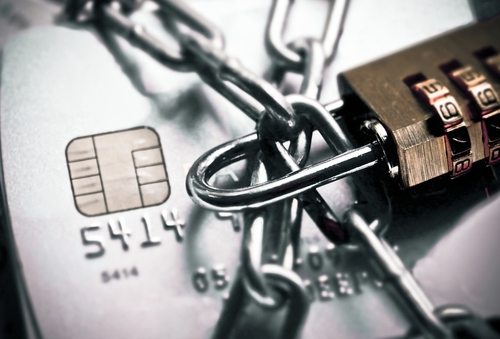The need for fingerprint biometrics in retail has never been more acute. While traditional high street sales continue to decline, leading to retail store vacancy rates hitting a four-year high, retailers acknowledge their survival lies in providing memorable, immersive and personalised customer experiences. Stand-out customer service, fuelled by customer data insights to help retailers deliver personalised and targeted customer relations, including top-level loyalty schemes, has never been more important.
However, just as retailers need them most, hackers are increasingly seeing loyalty accounts as prime targets. In fact, research shows that 24% of retailers surveyed viewed loyalty fraud as a substantial threat to their e-commerce operations.
Loyalty rewards are effectively a form of currency, many can be used to purchase physical goods, once enough points have been collected and have comparable value to cybercriminals. This is the case for not only high street retailers, but also other services such as airlines, which provide collectable points that can be exchanged for air miles, saving loyal customers hundreds, if not thousands of pounds. So, like bank accounts and payment forms, they require strong authentication. Fingerprint biometric smart cards are the answer to securing loyalty accounts and optimising the retail experience in a challenging environment.
Better with fingerprint biometrics
The key to captivating the modern shopper lies in a combination of convenience, experience and incentive, and this applies to merchants of all sizes. Many customers are computer-savvy and compare deals online, so retailers must have a more competitive offering across the board, rather than just on price.
Loyalty programs are very helpful in this pursuit; one study found that 86% of consumers have joined them, and another established that 71% of respondents considered loyalty schemes an important element of their relationship with brands.
However, when loyalty accounts are taken over by criminals, the effects can be costly to customers and retailers alike. Often, hackers achieve such crimes because most loyalty accounts (which may hold a high monetary value when used) have zero forms of authentication
Little wonder then, that Peter Maeder, co-founder of the Loyalty Fraud Prevention Association, is quoted as calling upon retailers to secure their loyalty schemes as securely as other valuable data, and for the use of biometrics.
Biometrics, especially fingerprint technology, is now the gold standard for authentication. Banking apps and smartphones are just two applications where fingerprint authentication is now standard. Given the extent to which loyalty points now function as a currency, doesn’t it seem common sense to apply the same level of security to them?
What is more, customers will be drawn to retailers with greater brand differentiation by offering fingerprint biometric smart card for their payments and/or loyalty program, as they will be assured of the personalised and customised nature of each transaction, strengthening their trust in the retailer. After all, what is more specific to the individual than their fingerprints?
Combining payment and loyalty
Taking this concept even further. Retailers that offer both credit cards and loyalty cards could differentiate themselves from competitors even further by combining payments and loyalty into one card, protected by fingerprint biometrics. This solution enhances security and convenience, increasing a consumer’s loyalty to the retailer and providing reliable and secure behavioural data to further enhance customer retention. Ultimately, if a consumer trusts a retailer, they are likely to spend more.
The future is personal
Finding a way to compel the modern shopper to spend at their store, rather than with the competition, and then to return repeatedly, are the two greatest challenges facing modern retailers. With the growing popularity in online shopping, consumers expect this level of convenience and personalisation to be replicated in all shops. They also expect loyalty to be recognised and rewarded.
By creating a home for everything — payment, ID, loyalty points — on a single fingerprint biometric smart card, merchants can assure clients of their commitment to personalisation and gold standard security, as well as providing convenience and a tangible reason for customers to return, over and over again.
Fingerprint biometric technology is ideal for this purpose, because it is (a) well known and accepted by consumers as a trusted, highly secure form of authentication and (b) easy to bring to the mass market.
Fingerprint sensor smart cards that store the fingerprint only on the card, and nowhere else, are particularly trusted by clients. They know that the absence of a database containing their fingerprint makes it impossible for that information to be hacked or stolen.
Having one fingerprint biometric card for everything brings shoppers and retailers closer together, unlocking the potential for truly aligned customer experience and a competitive edge in the retail sector.
The opinions expressed in this post belongs to the individual contributors and do not necessarily reflect the views of Information Security Buzz.



